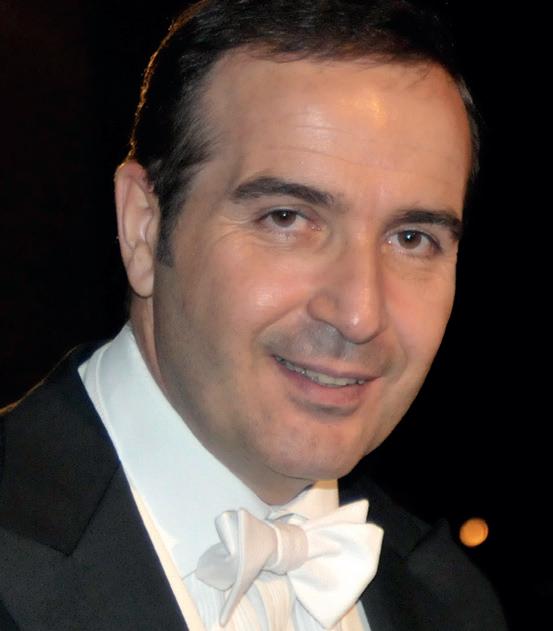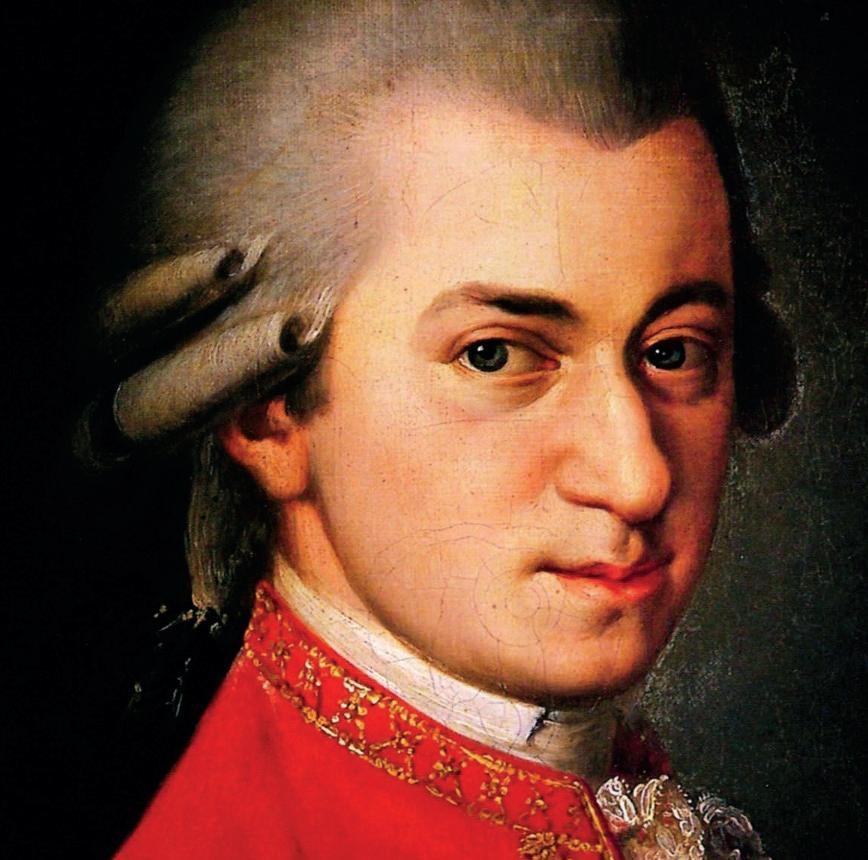
4 minute read
PERFORMANCE MEET THE ARTISTS
STEFANO VIGNATI, Conductor
Stefano Vignati is an Italian-born American conductor. He has conducted prestigious orchestras in the United States, Italy, China, Bulgaria, Czech Republic, Germany, Slovenija, Serbia and Switzerland and has collaborated with world-famous artists such as: Lina Wertmuller, Michele Campanella, Mariella Devia, Bruno Praticò, Alfonso Antoniozzi, Pierre Amoyal, Nicola Ulivieri, Marco Vinco, Mirco Palazzi, Jesus Leon, Moni Ovadia, Janet Perry, Carol Neblett, Limmie Pulliam, Svetla Vassileva, Leo An and Alexander Malta. In 1995 his first Concerto produced by the Italian RAI Radio-Television for “I Concerti di RaiTre” was broadcast and in 2007 and 2008 he directed two other RAI productions “Prima della Prima”, of “Le Nozze di Figaro” by Mozart and Rossini’s “Il Barbiere di Siviglia”, directed by Lina Wertmuller and Alfonso Antoniozzi respectively. In 1998, 1999 and 2000 he recorded various music CDs including the first interactive CD dedicated to Giuseppe Verdi’s Opera omnia, published by De Agostini of Novara. From 2007 to 2017 Maestro Vignati has been Artistic and Music Director of Tuscia Operafestival in Italy. In 2009 he was also appointed Artistic and Music Director of the Italian American Opera Foundation in Los Angeles, and in 2010 Artistic Director of the Viterbo Baroque Festival (2010- 2014) during which, among others, he conducted the Accademia Baroque Orchestra of Santa Cecilia and collaborated with artists and ensembles such as: Giovanni Antonini and the Giardino Armonico, Fabio Biondi and Europa Galante, Ramin Barhami, Enrico Onofri and Evangelina Mascardi. Maestro Vignati studied Piano and Composition under the guidance of T. Procaccini, C. Savelloni and C. Ricci, and Conducting with N. Hansalik Samale and Lawrence Golan. He also earned his Master’s degree in Conducting from the University of Denver in Colorado, USA. M° Vignati has been Professor at Drake University, Iowa, where he was also Director and Principal Conductor of the Drake Opera Theater (2015-2022.) He has been also guest conductor in 1998, 1999, 2000, 2001 and 2007 of the UNM Symphony Orchestra in New Mexico, in 2000 of the Amarillo Symphony of Dallas, Texas, in 2012 and 2013 of the Tonhalle in Zurich, and from 2014 to 2017 of the Wuhan Philharmonic Orchestra in China. Currently he is the Artistic and Music Director of the International Lyric Academy. Maestro Vignati is represented by Royal International Artists and PB Music.
Advertisement
KERRY JENNINGS, Director
Kerry Jennings is an Associate Professor of Opera Studies at Cal State Fullerton. His stage direction has recently been recognized with 1st and 2nd Place Awards in the National Opera Association’s Collegiate Opera Scenes Competition with scenes from The Ballad of Baby Doe (2021) and Der Rosenkavalier (2020), as well as being named a national finalist for The American Prize in Collegiate Opera Direction for his production of Massenet’s Cendrillon. Additional directorial credits encompass works from Monteverdi to composers of the 21st Century and include highlights such as L’Incoronazione di Poppea, Dido and Aeneas, Cosí fan tutte, Hänsel und Gretel, La bella dormente nel bosco, Suor Angelica and Gianni Schicchi, Amahl and the Night Visitors, The Old Maid and the Thief, Three Sisters Who Are Not Sisters, Sorry, Wrong Number, and The Cows of Apollo. Dr. Jennings also recently directed a production of Mozart’s Die Zauberflöte for the Austrian American Vocal Academy at the Kleines Theater in Salzburg. Before turning to a concentration in directing, Dr. Jennings’ performance highlights included over forty lead and supporting roles comprised of early, standard, and contemporary repertoire, recently singing the role of Ernesto in Don Pasquale in Sankt Anton, Austria. As a concert soloist, he has been heard in works by J.S. Bach, Beethoven, Händel, Haydn, Mozart, Puccini, Saint-Saëns, Rachmaninoff, Vaughan Williams, Britten, Fonseco, Orff, Rorem, and others. Noted for his “beautiful voice, great diction, and uncanny sense of style and phrasing,” Kerry’s recording In My Memory: American Songs and Song Cycles on Centaur Records was met with acclaim from both the composers and critics alike and features works by Libby Larsen, Tom Cipullo, Lori Laitman, and Richard Pearson Thomas. Libby Larsen has called Kerry’s recording of her cycle My Àntonia “the definitive reference performance for future performances. Jennings was a District Winner and Regional Finalist in the Metropolitan Opera National Council Auditions.

Wolfgang Amadeus Mozart

Wolfgang Amadeus Mozart (27 January 1756 – 5 December 1791) was one of the most influential, popular and prolific composers of the classical period. A child prodigy, from an early age he began composing over 600 works, including some of the most famous pieces of symphonic, chamber, operatic, and choral music. Mozart was born in Salzburg to a musical family. From an early age, the young Mozart showed all the signs of a prodigious musical talent. By the age of five, he could read and write music, and he would entertain people with his talents on the keyboard. By the age of six, he was writing his first compositions, and by the age of eight had composed his first symphony. Mozart was generally considered to be a rare musical genius, although he was also diligent in studying other great composers such as Haydn and Bach. The work of Mozart is epic in scope and proportion. There were few branches of music Mozart did not touch. He composed operas, symphonies, concertos, and solo pieces for the piano. His work spanned from joyful light-hearted pieces to powerful, challenging compositions which touched the emotions. At the beginning of his career, Mozart had a powerful ability to learn and remember from the music he heard from others. He was able to incorporate the style and music of people such as Haydn and J.S. Bach. As he matured, he developed his very own style and interpretations. In turn, the music of Mozart very much influenced the early Beethoven. In the last year of his life, he composed the opera The Magic Flute, the final piano concerto (K. 595 in B-flat), the Clarinet Concerto K. 622, a string quintet (K. 614 in E-flat), the famous motet Ave Verum Corpus K. 618, and the unfinished Requiem K. 626.










